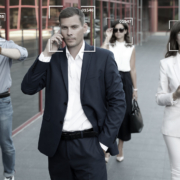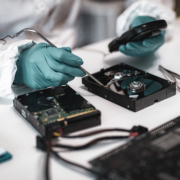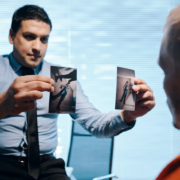Protecting Rights in an Era of Facial Recognition Technology
Facial recognition technology has rapidly gained prominence in American society, found in everything from stores and restaurants to public government buildings. If it feels like something out of Black Mirror, it is—companies use facial recognition technology to understand buying patterns, create buyer profiles, target their advertisements, and gather private data on consumers. This type of data can also be used to identify shoplifters and others accused of crime.
How do you protect your rights in a world where stores, banks, and more have profiles on you without your explicit consent? Learn more about facial recognition technology, its uses, and how you can protect yourself. If you’ve been arrested or accused of a crime due to this technology, it’s time to talk to a criminal defense lawyer in Mobile, AL. Call Coumanis & York at 251-336-3491 to schedule a consultation immediately.
Who Uses Facial Recognition Technology?
It would be easier to list who isn’t using facial recognition technology than to list the entities that are using it. Governments, law enforcement agencies, restaurants, retail stores, and social media platforms are among the many entities that rely on this technology. As time passes, you’ll see more and more companies turning to this technology for a variety of reasons. That’s why it’s important to get a handle on it now and understand how it may impact your life.
How This Technology is Used
Each company and agency that uses facial recognition technology utilizes it in a different way. Stores identify new and repeat shoppers, slowly building a database of where each shopper spends their time, the items they pick up and put back, the purchases they make, and their in-store behaviors. Stores also use this technology to track shoplifting, tag-switching, and other illegal behavior.
Depending on the store’s policies, they may report this to the authorities immediately or wait until an individual has stolen enough for it to be considered a felony. Governments often use facial recognition technology for border control, surveillance of individuals under investigation, and detection of criminal activity. Law enforcement agencies often rely on facial recognition technology to provide crucial digital evidence. Social media platforms use facial recognition software to sort photos, target their ads, and recommend content based on users’ demographic information.
Risks and Concerns
It doesn’t take much imagination to think about all the risks that come with facial recognition technology. Many of those risks have already become a reality. The potential for mass surveillance means that the government could essentially keep tabs on everyone, tracking each person’s specific movements without their knowledge or consent.
There are lots of concerns regarding the accuracy of facial recognition technology—how accurate is it? Can it tell the difference between twins? Siblings? What about people with different makeup styles or hairstyles from day to day?
Some experts are also concerned about racial bias in facial recognition technology, depending on how thorough the technology’s training is in people of different racial backgrounds. Finally, there’s always the possibility of false positives. When this technology incorrectly identifies an individual, it can be incredibly difficult for that person to clear their name.
Finally, even if facial recognition technology does help law enforcement catch criminals, what about everyone else it tracks? It’s hard to call an investigation method ethical or not legally questionable when it subjects millions of innocent people to surveillance simply so law enforcement agencies can catch a small number of criminals. Many people aren’t on board with the loss of privacy that entails.
How You Can Protect Your Rights
Unfortunately, there is only so much you can do to protect yourself from facial identification technology. It has become so widespread that it’s nearly impossible to avoid. You can be thoughtful about where you spend your time and money, and avoid going places that utilize this technology for unethical purposes. You can also support initiatives and grassroots movements that fight back against the growing role of surveillance technology in our society. Many countries are starting to push back against the use of this technology, and we can drive change.
Has Facial Recognition Technology Led to Criminal Charges Against You? Call Coumanis & York
Facial recognition technology has completely changed our understanding of privacy. For better or for worse, it is here to stay—and you need to defend yourself if facial recognition technology leads to criminal charges. Our team of Mobile, AL criminal defense attorneys is here to help. Contact us online or call us at 251-336-3491 to set up a time to talk now.











Leave a Reply
Want to join the discussion?Feel free to contribute!